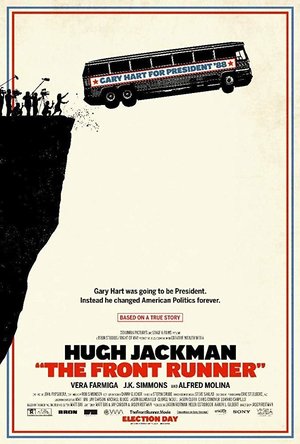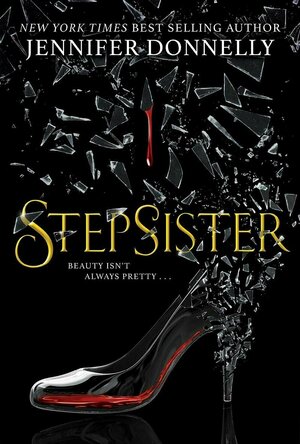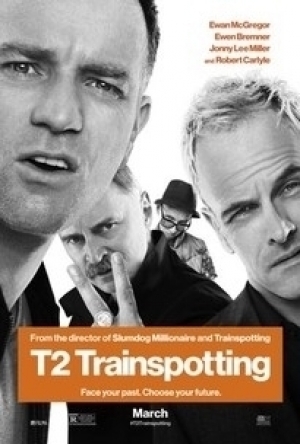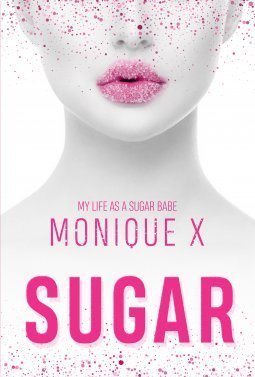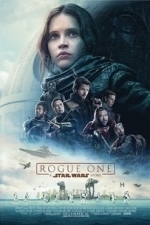Bob Mann (459 KP) rated The Front Runner (2018) in Movies
Sep 28, 2021
“The Front Runner” fortunately avoids this last category, but it’s certainly not good enough to make it into the ‘classics’ list either.
A true story.
The film is based on the true-story of US presidential hopeful Gary Hart (Hugh Jackman) and if you are NOT aware of the historical background then you might want to skip the rest of this review – and indeed all others – so you can see the film first and let the history come as a surprise to you.
Hart was younger than most candidates: good-looking, floppy-haired and refreshingly matter of fact in his dealings with the public and the press. Any interviews had to be about his politics: not about his family life with wife Lee (Vera Farmiga) and teenage daughter Andrea (Kaitlyn Dever).
Unfortunately, Hart has a weakness for a pretty face (or ten) and his marriage is rocky as a result: “Just don’t embarrass me” is Lee’s one requirement. His “nothing to hide” line to an intelligent Washington Post reporter – AJ Parker (a well cast Mamoudou Athie) – leads to a half-arsed stake-out by Miami Herald reporters and incriminating pictures linking Hart to a Miami pharmaceutical saleswoman Donna Rice (Sara Paxton). As the growing press tsunami rises, and his campaign manager (J.K. Simmons) gets more and more frustrated with him, can his candidacy survive and will his (now very much embarrassed) wife stick by him?
The turns.
Hugh Jackman is perfectly cast here; very believable as the self-centred, self-righteous and stubborn politician. But this central performance is surrounded by a strong team of supporting players. Vera Farmiga is superb as the wounded wife. Sara Paxton is heartbreaking as the intelligent college girl unfairly portrayed as a “slapper” by the media. The scenes between her and Hart-staffer Irene (Molly Ephraim), trying desperately to support her as best she can, are very nicely done. J.K Simmons as campaign manager Bill Dixon is as reliable as ever. And Alfred Molina turns up as the latest film incarnation of The Post’s Ben Bradlee – surely one of the most oft portrayed real-life journalists in film history.
“What did they just say”?
The biggest cause of dissatisfaction I have with the film is with the sound mixing. Was this a deliberate act by director Jason Reitman, to reflect the chaotic nature of political campaigning? Whether it was deliberate or not, much of the film’s dialogue – particularly in the first 30 minutes of the film – is drowned out by background noise. Sometimes I just longed for subtitles!
Just a little bit dull.
The screenplay, by Matt Bai (from his source book), Jay Carson (a Clinton staffer) and director Jason Reitman might align with the history, but the big problem is that the story’s just a little bit dull, particularly by today’s levels of scandal. This suffers the same fate as “House of Cards” (even before the Kevin Spacey allegations) in that the shocking realities of the Trump-era have progressively neutered the shock-factor of the fiction: to the point where it starts to become boring. Here, only once or twice does the screenplay hit a winning beat: for me, it was the scenes between Donna Rice and Irene Kelly and the dramatic press conference towards the end of the film. The rest of the time, the screenplay was perfectly serviceable but nothing spectacular.
When is a politician’s personal life private?
A core tenet of the film is Hart’s view that politics should be about the policies and not about the personality. Looking at the subject nowadays, it’s clearly a ridiculously idealistic viewpoint. Of course it matters. Politicians need to be trusted by their constituents (yeah, like that’s the case in the UK and the US at the moment!) and whether or not they slap their wives around or sleep with farm animals is clearly a material factor in that relationship. But this was clearly not as much the case in the 70’s as it is today, and the suggestion is that the Hart case was a turning point and a wake-up call to politicians around the world. (An interesting article by the Washington Post itself points out that this is also a simplistic view: that Hart should have been well aware of the dangerous game he was playing.)
Fidelity in politics.
Do you think that powerful politicos are driven to infidelity because they are powerful? Or that it is a characteristic of men who have the charisma to become political leaders in the first place? Such was the discussion my wife and I had in the car home after this film. Nature or political nurture? I’m still not sure.
It’s worth pointing out that to this day both Hart and Rice (interestingly, an alleged ex-girlfriend of Eagles front-man Don Henley) stick to their story that they never had sex.
Final thoughts.
The film’s perfectly watchable, has great acting, but is a little bit of a non-event. The end titles came and I thought “OK, that’s that then”…. nothing more. If you’re a fan of this style of historical political film then you probably won’t be disappointed by it; if not, probably best to wait and catch this on the TV.
Lottie disney bookworm (1056 KP) rated Stepsister in Books
Aug 16, 2019
Judging purely by the title of the book: the cynical side of me expected this to be a retelling of the traditional fairy tale from the viewpoint of the “ugly stepsisters”. Perhaps with a remorseful twist and a concluding reconciliation. I could not have been more wrong.
This is possibly the first time I should have judged a book by its cover: the iconic glass slipper casting fragmented shards across the jacket should have certainly forewarned me that this will not be just another Cinderella story.
Unlike the twisted tales and the villain series, Step Sister is, as far as I know, not connected to the Disney enterprise at all. This makes it an edgier read by far but also allows the novel to lean as far away from the traditional fairy tale as it dares: smashing just a couple of stereotypes along the way.
Oh, and just a quick point: the novel opens on Isabelle and Octavia disfiguring their own feet, at the command of their mother, with the aim to fit into the glass slipper and marry the Prince. See what I mean- edgy right?
Stepsister is told from the viewpoint of Isabelle: a headstrong girl with an ambitious mother, an intelligent sister Octavia and a kind, sweet sister, Ella. Isabelle is a disappointment to her mother: a plain girl who prefers riding and fencing to corsets and suitors. A number of flashbacks to the girls’ childhood also suggests that Isabelle, Octavia and Ella were once very close, leading the reader to wonder how the relationship became the poisonous one we are so familiar with.
Unsurprisingly, their Maman’s plan to mutilate her way to the palace does not succeed and Ella takes her rightful place by the Prince’s side, claiming her ‘happily ever after’. But what is to become of the family she leaves behind? Maimed and outcast, Isabelle and Octavia struggle to carry on once their actions are brought to light and they are promptly labelled the “ugly stepsisters” by all around them.
Desolate and lost, Isabelle mistakenly believes that her life would improve if she were more attractive and makes a wish to the fairy queen Tanaquill, who promises to grant her desire when Isabelle finds the three missing parts of her heart.
Thus, begins Isabelle’s mission to reclaim her heart and turn her life around. The stepsister’s road of discovery is a bumpy one however, and is not made any easier by an old crone named Fate and a young man named Chance, both of whom seem to have an unhealthy obsession with her progress and a strange, almost friendly rivalry over the possession of Isabelle’s life map.
Jennifer Donnelly introduces us to a number of characters throughout Isabelle’s journey, all of whom are exquisite: Chance is an eccentric debonair with an entourage that may have just stepped out of The Greatest Showman; Octavia is every nerdy, sarcastic girl’s dream and even Fate is strangely likeable. It is truly impressive how Donnelly can make us feel like we know these people within the space of 470 pages.
I was also impressed with how different Jennifer Donnelly’s characters are from everything I have read before. Even Tanaquill is not the fairy godmother we all know and love. She isn’t even the slightly bonkers Helena Bonham-Carter version! There isn’t a bibbidi bobbidi boo in sight for this talon-fingered shapeshifter and she certainly does not grant wishes easily.
As a result, the reader does not quite trust the fairy queen: there is always an aspect of her that seems evil. Alas, this is another stroke of genius by Donnelly: the fairy queen doesn’t look like Tinkerbell or the Blue Fairy and so we don’t trust her- even when she is helping Isabelle and why is that? Because of her appearance? Well that makes us just as bad as those who persecute Isabelle!
Ella features very little in the novel. This is not wholly unexpected: it is not her story after all. She is frequently referred to and heavily present in Isabelle’s evolution but, out of all the characters, we know Ella the least. This is not to say that Donnelly presents Ella as a 2D character in order to prevent us from preferring her to our feistier protagonist: in fact, Ella slowly reveals a darker side to her own tale. Simply put, she does not have the depth and human rawness that Isabelle has. Isabelle appeals to the insecure teenager in us all: never believing that she is good enough, focusing on her flaws and judging herself based on the opinions of others.
When Isabelle finally finds the pieces of her heart and has to literally fight to achieve her happy ending, she automatically looks to one of the male characters to lead. After all, it has always been instilled into her that she is “just a girl”. However, Chance and his entourage have educated Isabelle as to the potential of her sex and it is through this inspiration that Isabelle and the reader realise that the answer has been there all along: the answer is Isabelle. All the childhood flashbacks of riding and fighting have been breadcrumbs for the reader: Isabelle is a warrior- her life is not mapped out by Fate or Chance anymore; she can decide her own path.
Step Sister holds up a gigantic mirror to the way we judge beauty and shows us what it really means to be a girl. Jennifer Donnelly proves that being strong, brave and, most importantly, true to yourself is what makes you beautiful. In fact, it is not until Isabelle accepts herself that she is described as beautiful and, by standing up for what she believes in, everyone achieves their own happy endings. As a mum of two young boys I really appreciated how Octavia’s love of science and math and Felix’s creativity and love of art directly contrasted with Maman’s old-fashioned desire to “marry off” her daughters. This story is no fairy tale: it is real, it is edgy and it is telling all generations that life is what you make it.
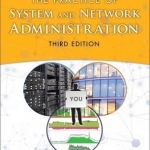
The Practice of System and Network Administration: Volume 1: Devops and Other Best Practices for Enterprise it
Strata R. Chalup, Thomas A. Limoncelli and Christina J. Hogan
Book
With 28 new chapters, the third edition of The Practice of System and Network Administration...
Gareth von Kallenbach (965 KP) rated T2 Trainspotting (2017) in Movies
Jul 12, 2019
Naturally, when the announcement was made for a second Trainspotting movie, I was both excited and terrified at the same time. The first was so good, why did Hollywood need to ruin it with a sequel that has a bigger budget. What was promising was that it was announced that the entire cast of characters (that survived from the first film) would be back, including Diane (Kelly MacDonald). But it’s been 20 years. Typically, when you see sequels come out even after only 10 years, the whole film seems a contrite, forced replication of the first. Hell, look at all the criticism for the Hangover films being exactly that, and they were only a few years apart. Whether the script feels forced just for the sake of a sequel, or the actors are trying too hard to be the character they played many years prior, it never quite works. So, as we neared the release date, I was getting more and more weary of seeing the film. Then, the trailer dropped.
Damn the trailer looked good. And I will tell you, the movie did not fall into the trap of forced sequels. The main cast came back and played the characters perfectly. Not as they were, but as the people they grew to be over the 20-year period. The plot was fun and pointless, with all of the same charm as its predecessor. I saw the movie with fellow SKNR staffer Joshua Aja, and we had a pretty good conversation following the film. We both came to the same conclusion, that neither of us could remember the last time we saw a film that just that good.
So now to the actual meat of the review itself. What was the movie about? Well, I won’t give away too much, but I will give you a quick recap of the events leading up to this film. Basically, do you remember the end of Trainspotting? Renton (Ewan McGregor), Spud (Ewen Bremner), Sick Boy (Jonny Lee Miller), and Begbie (Robert Carlyle) had successfully pulled off a heist, and Renton was making off with the money while everyone slept, except Spud of course who saw Renton leaving but didn’t say anything. As a result, Renton left Spud’s share of the cash for him in a locker. Okay; all caught up.
T2 Trainspotting picks up 20 years later. Renton comes back to Scotland because his mother passed away, he ends up reuniting with Spud, and eventually Sick Boy, who we now know by his real name, Simon. Begbie is in prison because, well… he’s Begbie, but he doesn’t stay there long. Tempers fly, old feelings flare, and not every reunited moment is met with glee. But soon enough, Renton, Simon and Spud are drawn into old habits, though not old drugs, and start to build money up to open a ‘sauna’ (read: undercover brothel) for Simon’s girlfriend, Veronika (Angela Nedyalkova). It’s not long before Begbie shows up and starts mucking things up leading to a suspenseful conclusion between Renton, Simon and Begbie.
That’s all I can say. There was an excellent use of the history from the first film, and of course we get another fantastic ‘Choose Life’ speech from Renton. The soundtrack, while not quite as good as the first, still holds its own very well. And be sure to look for the Bowie tribute, since it was he who helped Danny Boyle obtain a lot of music rights on the cheap for the first film. And, you will find Spud’s writings throughout the movie to be lifted, verbatim, from the Trainspotting by Irvine Welsh. But what’s interesting, is that there is not a lot that relates this film to the literary sequel, Porno. Much of the plot of this film is taken from, or at least inspired by, parts of the book that were not used in the first film. That combined with some new writing and storytelling from Irvine Welsh and John Hodge.
Bottom line: if you liked the Trainspotting even in the slightest, you will absolutely enjoy T2 Trainspotting. A phenomenal job by cast, crew, and writers, and an excellent soundtrack will leave you wanting a trilogy. This is only the third film I have given a perfect score to in my 7 years of reviewing films, and it is well deserved. Go see this movie.
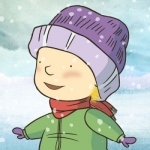
Into the Snow: A Stella and Sam Adventure
Games and Education
App
(Description en français plus bas.) Play alongside Stella and Sam and their dog Fred as they go...
Heather Cranmer (2721 KP) rated Finding Esme in Books
Jan 25, 2020
Esme is a 12 year old girl growing up in the 1970's. Her home life isn't very traditional. Her dad is out somewhere being a wanderer, and her mom is too busy worrying about her dad to look after Esme. The only person that really looks after Esme is her grandma Bee. When Esme finds dinosaur bones (which she'd like to keep secret) on a hill by her house, things start changing for Esme.
I really loved the plot of Finding Esme. There is a touch of magical realism within this book that written very well. Esme and her grandmother have certain gifts. They can find lost things and/or people usually. There's also sightings of ghosts although not spooky ghostly sightings. Suzanne Crowley does such a fantastic job of making the magical realism element seem like it's an every day happening in real life. She also does a fantastic job with Esme's dealing of loss and just with the whole plot overall. Although Finding Esme does start out a bit slow, as well as a bit confusing with a bunch of different names, it quickly picks up the pacing. Also, it because clear which character is which quickly. The wording may be confusing for some as it's written in semi-heavy Texas twang and slang throughout. However, context clues help. It was easyish for me to understand being as I was born and raised in Texas.
I must gush now on the characters found in Finding Esme! They were all so fleshed out and felt like they were actual people I was reading about instead of just being fictitious characters. Bee, Esme's grandmother, was probably my favorite character because I loved her no-nonsense approach to things. June Rain was always in la la land since her husband was always up and missing. My heart ached for her, but at the same time, I was angry with her for not paying more attention to her children, Esme and Bo. Sweetmaw was another great character, and I loved her for watching out for Esme when Esme felt she had no one. Finch, Esme's best friend, cared for Esme very much, and it was obvious throughout the novel. He only wanted what was best for Esme even if she had a hard time figuring that out. I loved little Bo, Esme's younger brother. I can't remember if Bo's age is ever mentioned in Finding Esme. I guessed Bo to be around 7 or so based on how he acted. Esme was a fantastically written main character. I could relate to her on so many levels especially when it came to not feeling loved or wanted. I'm sure we've all felt like this at some point in our lives. Esme was wanting to keep her dinosaur bones (which she endearingly refers to as Louella Goodbones) secret just so she could have at least one thing that was just hers. I was angered when her secret bones were no longer her secret (not a spoiler). I just wanted to hug Esme to let her know that she wasn't alone. She seemed like such a sweet girl who had already had to put up with more things than most children her age.
One main thing I feel that I must mention is this is Finding Esme is listed as being a middle grade book. I guess this is because the main character is 12 years old. I felt like this wasn't a typical middle grade read as it lacks a middle grade feel. The wording and narrative seemed to be written towards more of an older audience especially with mentions of things that happened in the past that a middle grade audience may not know about or understand. I feel like Finding Esme would probably go over most middle grader's head with the language and events that happened. Even though Esme is only 12, I feel like adults would enjoy this more or at least a young adult audience.
Trigger warnings for Finding Esme include death, depression, gun violence (although not graphic), an absent father, and profanity (although it was just the word damnation used once).
Overall, Finding Esme is a fantastical read which will tug at your heartstrings and leave you breathless. It's a quick read that you won't want to put down. At least, I didn't! I never wanted it to end if I'm being honest. I would definitely recommend Finding Esme by Suzanne Crowley to those aged 15+. Yes, it's supposed to be a middle grade read, but as I mentioned before, I really think adults and possibly teens would enjoy it more.
--
(A special thank you to Suzanne Crowley for sending me a hardback of Finding Esme in exchange for an honest and unbiased review.)

Dating DNA Plus
Dating, Entertainment and Social Networking
App
Dating DNA is the #1 dating app in the iTunes store with 100% FREE SERVICE. NO Monthly Fees! NO...

Invoice Manager
Business and Productivity
App
30% OFF TODAY. REGULAR PRICE $9.99 USD Invoice Manager is the only invoice app on the App store...
Midge (525 KP) rated Sugar: My Life as a Sugar Babe in Books
Dec 11, 2018
Monique is a loving single mother, who is trying to create a happy home for her two daughters and she's also a Sugar Babe, dating wealthy men, a practice known as Sugar Daddy dating. She mostly meets her Sugar Daddies during the day, when the children are at school or when they are with their father. Monique finds a thousand pounds in her purse after one night of passionate and very hot sex, and she realises that Sugar Daddy dating could be her way to survive as a single mother.
A heady life of wealthy men, luxury hotels and glamorous experiences ensue. One of my favourites was Iranian engineer Farshad, who liked to lavish Monique with gifts such as expensive jewellery and leather boots and wine and dine her in exotic restaurants.
Dates with Sugar Daddies see her flying to Paris, Barcelona, Vienna, Milan, Japan, Singapore and Hong Kong and skydiving in Dubai. Thanks to her Sugar Daddies, Monique can provide for her children, she has some independence, and experiences a whole new range of sexual fantasies.
She deactivates her account with her agency, Seeking Arrangement, and her ex-husband stops paying for the children's' upkeep. She is then prepared to do anything for the sake of her children. Money becomes her top priority and she starts living in the dangerous waters of the escort world. Now she realises that she must find a way out before this hollow existence becomes a habit.
I absolutely loved reading Sugar. Maybe it was the novelty of reading a book told as memoirs and based on true events. It was fascinating to read about Monique's travels to different countries and about the different nationalities, cultures and personalities of the gentlemen she dated. However, she ends up working as an escort rather than a Sugar Babe, as it's all about basic survival instincts, money and very spicy sex.
Sugar is steamy and hot, passionate and caring, intense and emotional and there are definitely moments where you will laugh. It is such a fun, fast and interesting read.
Monique X is a brilliant storyteller and really draws you in with her descriptiveness.
Thanks to NetGalley and Thistle Publishing for my ARC.
Daniel Boyd (1066 KP) rated Rogue One: A Star Wars Story (2016) in Movies
Jul 19, 2017
This movie for the most part impressed me. I loved how well it tied into A New Hope and how it actually fixed that movie’s biggest plothole by explaining that the weak point in the Death Star was installed on purpose by Galen Erso while designing the battle station under the Empire’s thumb, so that the Rebels would have a chance to destroy it. I loved how the movie had the balls to kills off the entire crew of the Rogue One team at the end of the movie and that corridor scene at the end with Vader was possibly the best scene I’ve seen in the cinema this year, it’s definitely up there with the airport scene in Civil War. Those are the stand out positives of the movie for me, however there were also a few flaws throughout the film.
First of all, that Grand Mof Tarkin CGI recreation of Peter Cushing was awful, the whole thing looked like a character from the Star Wars animated series. When he is first introduced it is through a glass reflection on a window he is looking out of and in that part of the scene it was fairly convincing, however he then turns around and the camera moves to a medium close up shot and all of a sudden it feels like watching a video game cutscene. Guy Henry was the actor who did the motion capture for Tarkin and that actor actually looks relatively similar to Peter Cushing, so why they didn’t just apply some makeup to Guy Henry and dye his hair gray to resemble Cushing more and recast the Tarkin role is a mystery to me, it would have also been a lot cheaper than the method that they went with. Either that or he should have only been seen in the reflection of the glass, since that was the only time that the CGI effect actually looked convincing. However, I did think that the CGI recreation of 1970’s Carrie Fischer at the end of the movie was very convincing and if it wasn’t for the movement in her mouth, I wouldn’t have known that was a CGI character. Another flaw I had with the movie was the how rushed and choppy the first act was, the characters were all introduced quickly and vaguely, then it took them ages to actually form up as a team. I get that introducing a whole cast of brand new characters in a short space of time isn’t easy, but Tarantino pulls it off in Hateful 8 and Inglorious Bastards and it works a lot better than it works here.
In a lot of ways Rogue One is a contrast to Force Awakens. In Force Awakens, the plot was essentially the same as A New Hope and was a fairly by the book, traditional Star Wars story, but the characters were what made that movie, if Poe Dameron, Rey, Finn, Kylo Ren, Han and Chewie weren’t as well written, that movie would have been mediocre at best. In Rogue One, the characters are pretty shallow and underdeveloped and they are introduced quickly and by the end of the movie none of them have really had a proper character arc. However that is not what this movie is about, this film is about a team of people coming together in order to complete a task to set up the events of the original trilogy and in that sense this movie does what it sets out to do. An example of this is the robot character K2SO, who I thought was going to start off with no humanity, then over the course of the movie realize the value of human life and then sacrifice himself for the greater good at the movie’s climax, but it turns out that the only real reason that he is helping the Rebels, is because he has been programmed to do so. This I feel sums up the level of character development present in the movie and demonstrates that it is not necessary in the film as that isn’t the movie’s purpose. What Force Awakens lacked in an original plot, it made up for in character development and what Rogue One lacks in character development, it makes up for in plot and setup, so both movies have their strengths and their flaws. Bearing in mind that I have only seen Rogue One once so far, I currently prefer Force Awakens to Rogue One, but then I prefer Return of the Jedi to Empire, so maybe that’s just me.
The writing moves the story along at a brisk pace, but it is effective in that you are constantly kept aware of where we are and what is happening at least from the end of the first act onwards. The performances are also suitable to the characters in each role, but I wouldn’t say anyone was incredible, my personal favourite was Cassian, the Alliance’s trigger finger who had shades of Han Solo thrown in as well. While watching Diego Luna’s performance, I actually thought he would be a good pick to play Nathan Drake in the Uncharted movie. The lighting in the film is well used and the CGI is spectacular for the most part other than weird waxwork Peter Cushing. The space battles are breathtaking and the action on the ground is also exciting.
Now, let’s talk about the characters that weren’t part of the Rogue One team. Forest Whittaker and Mads Mikkelson are two of my favourite actors working in Hollywood today and they are both in this movie, but I feel that both could have been used more. When they are onscreen, they are brilliant, it’s just a pity they make up such a small part of the movie. Whittaker appears only to be killed off minutes later and Mikkelson is only in two major scenes outside of a brief hologram appearance and then also gets killed off unceremoniously. The reason that a lot of people will go and see this movie however, will be to see Darth Vader. He isn’t in the movie much, but when he is it is fantastic. All of this reminds me a lot of Edwards’ last movie Godzilla, where Bryan Cranston and the monster were clearly the best parts of that movie, but for some reason were hardly in the thing. It’s as if Edwards has this idea in his head that less is always more and if he doesn’t show what people want to see in the movie for more than a few minutes at a time, then he is being original and artistic. While I understand this way of thinking from an auteur perspective, it’s fucking Star Wars and Godzilla mate, just give the people what they want. It is far less of an issue here however, since the rest of the cast in Rogue One are far more compelling than the rest of the cast in Godzilla.
Anyway, back to Vader. We first see Vader when Krennic goes to see him in his Imperial Castle in Mustafar, the same location that he was relieved of his limbs and burnt alive in a pool of lava. The way he is introduced is awesome, when Krennic arrives one of Vader’s cloaked minions enters a large room containing an ominous bacta tank, which we see Vader floating in without his suit on. This is the most vulnerable we have ever seen Vader since we saw him getting his suit fitted for the first time in Revenge Of The Sith. The tank empties and we see Vader’s stumps where his arms and legs once were and we see the burnt skin that covers his torso. Then we cut to him in full costume, complete with the classic James Earl Jones voice and force choking Krennic. He then disappears again for most of the movie, until the second to last scene where he is at his most powerful and this could genuinely be my favourite Vader scene of all time, perhaps even beating the infamous, ‘I am your father,’ scene from Empire. Vader in this scene is pure raw anger and power and the way the scene is shot and lit is fucking perfect, the audio and the editing fantastic also. The scene opens with a dark corridor with Rebels scrambling to get the hard drive containing the Death Star plans to the other end of the corridor and onto the ship that Leia is on, so that she can go on to get the plans into R2 in order to kick off A New Hope’s events. At first you wonder why the Rebels are in such a panic then you hear the terrifying breathing from Vader’s suit, but he still isn’t shown. Then the first and only lightsaber in the movie is sparked and it illuminates Vader in all of his terrifying glory before he starts tearing through the Rebels like a monster in a horror movie. This minute long scene is one of the best I’ve seen this year and it alone made the ticket price worth it for me.
Overall, Rogue One was essentially what I thought it would be based on the trailers. I don’t personally understand the overblown critical fanfare that the movie is receiving, but I’m glad that Star Wars fans like it. There are many parts of the movie that could be considered polarizing, such as the lack of Vader scenes, the dodgy Tarkin CGI, the fact that the entire Rogue One squad is killed off at the end of the movie, the absence of an opening crawl and Forest Whittaker’s raspy voice, which admittedly takes a bit of getting used to. Some of these elements I loved and some I hated, but for the most part this is an enjoyable addition to the Star Wars saga, I love how well it ties into and sets up the events of the films following this one and it was an added bonus that they actually resolved some of the original trilogy’s flaws. As I said earlier, I still prefer The Force Awakens to this, but I can see how an argument could be made for this one being a better movie.
